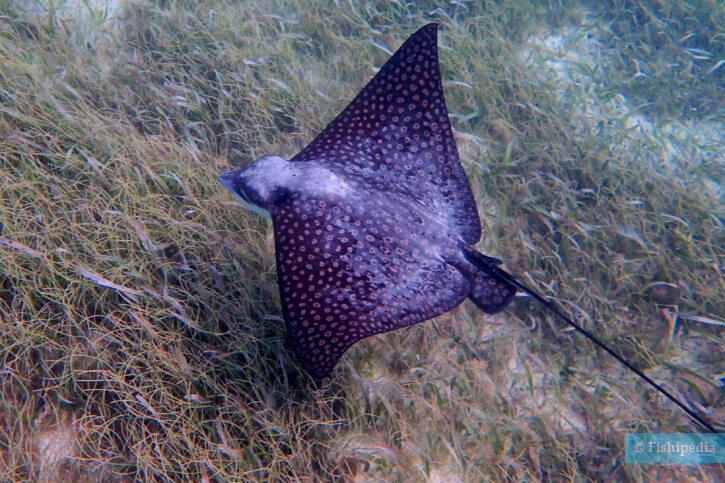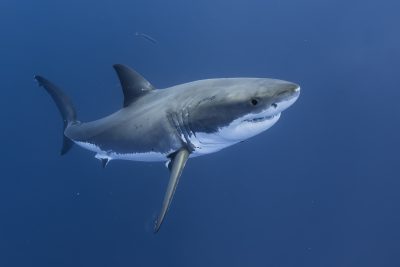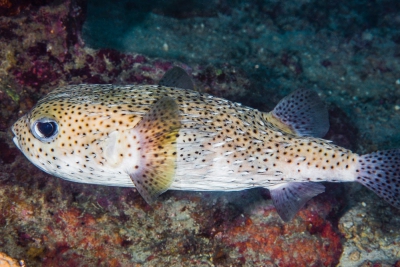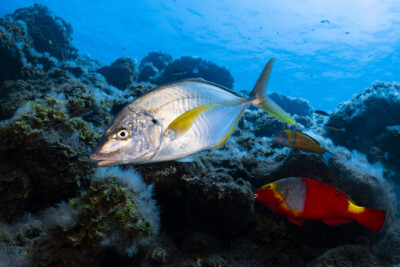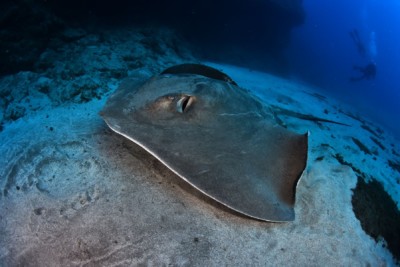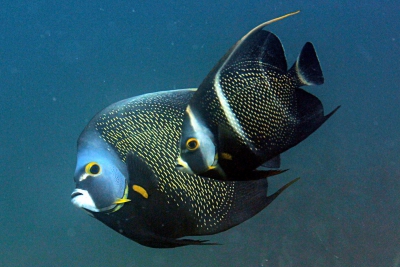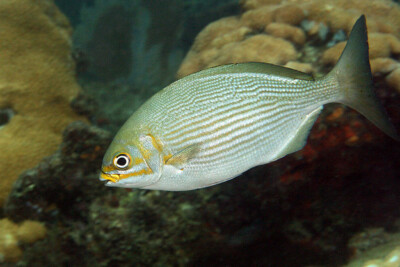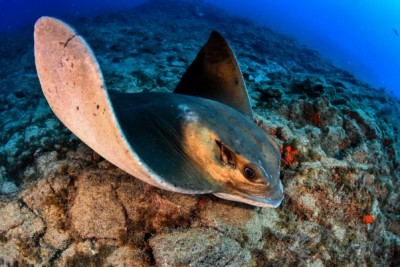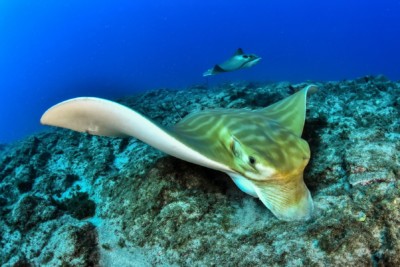whitespotted eagle ray
| Family | Myliobatidae |
|---|---|
| Genus | Aetobatus |
| IUCN category (World) | EN |


Introduction
Aetobatus narinari, commonly known as whitespotted eagle ray, is a salt water fish.
This sheet is currently being prepared. The texts currently proposed come from our data model or are being drafted. To request priority for this content, you can write to us HERE.
Who is it?
Morphology
-
Type
-
Average size120 cm
-
Maximum size330 cm
-
Type
-
Average size120 cm
-
Maximum size330 cm
How to recognize This fish ?
The whitespotted eagle ray measures between 120 and 330 cm. This fish is bicolore with a predominantly noir and blanc body.
Behaviour & Life cycle
-
dietcarnivorous
-
Sociabilitygregarious
-
territorialNo
-
Way of livingdiurnal
The whitespotted eagle ray is a fish gregarious naturally found near the bottom. This species is carnivorous .
n general, this species does not care much about other animals crossing its path.
Reproduction
-
Reproductionovovivipare
The whitespotted eagle ray is a fish ovovivipare.
Risks for humans
-
VenomousNo
This species is venomous and can cause serious injuries when touched.
What to do in the event of a sting?
in case of sting, the following rules should be followed, in this order:
- Isolate the victim from the danger and quickly remove him or her from the water
- Call for help
- Lay the victim down in a half-sitting position and avoid any effort
- Immobilize the affected limb
- Clean the wound
- The venom of this species being thermolabile, it can be neutralized if it is submitted to a temperature of about 45 °C. It is therefore possible to heat the wound. This popular technique should be practiced with great care so as not to aggravate the wound by burning it. It is advisable to immerse the affected limb in hot water.
- If the puncture is too deep, heating the wound will be less effective.
Sometimes the sting can cause discomfort or even loss of consciousness in the victim. The stings are usually very painful.
Origin and distribution
What is its habitat?
Natural environment characteristics
-
Depth1 - 80 m
Biotope presentation
The whitespotted eagle ray is most often found at a depth between 1m and 80m. However, it is not impossible to find this species at other depths.
Species of the same biotope
To go further
Sources & Contributions
Participation & Validation
The Fishipedia team and specialist contributors are committed to providing high-quality content. However, although the information comes from scientific sources or testimonials from specialists, the cards may contain inaccuracies.

Benoit Chartrer

Adrien Falzon
Translation
Translation done with the valuable contribution of our translators, who make this information available to a wider audience. We sincerely thank them for their commitment.
Scientific partners
Tags
#Myliobatidae
#Aetobatus
#barrière de corail
#estuaire
#Ray
#Caribbean Sea
#Atlantic Ocean: North Coast of Brazil
#Océan Atlantique Est Afrique - Golfe de guinée
#Northwest warm temperate Atlantic Ocean
#Southwest warm temperate Atlantic Ocean
#Eastern tropical Atlantic Ocean
#Southwest Tropical Atlantic Ocean
Species of the same family
Species of the same biotope
